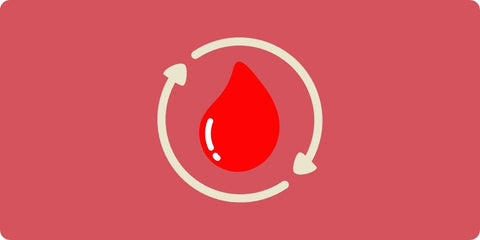Keeping track of your menstrual cycle is not only useful for determining your fertile days or predicting your next period. It can also provide insight into your physical and emotional well-being throughout the month. With this knowledge you can plan ahead and better tailor your activities, nutrition and social interactions to your body.
Nutritional advice per phase of the menstrual cycle
- Follicular phase (days 1 to 14) : Starting with the first day of menstruation, when you may feel weak or tired, it is important to consume iron-rich foods such as red meat, spinach and lentils to counteract iron loss. As your body builds up to ovulation, which increases energy levels, complex carbohydrates such as whole grains, vegetables and fruits can provide you with the energy you need.
- Ovulation (about day 14) : Around ovulation, when energy levels often reach their peak, you can take advantage of foods rich in fiber and protein to help you feel full and keep your hormones balanced.
- Luteal phase (days 15 to 28 ): After ovulation, your body may retain more fluid, sometimes resulting in bloating. It is advisable to reduce water-retaining foods such as salt and sugar and increase diuretic foods such as cucumber, green tea and asparagus that can help reduce fluid retention. It's also smart to eat smaller, more frequent meals to maintain digestive comfort.
Tips for training during the cycle
- Follicular phase : You may feel stronger and have more energy, so it's a good time for high-intensity workouts like strength training or high-intensity interval training (HIIT).
- Ovulation : Many women experience a peak in strength and performance around ovulation. Take advantage of these days by planning your most challenging workouts.
- Luteal phase : You may feel more tired and have less motivation. Opt for gentler, less intense activities such as yoga, swimming or light cardio that are less stressful on your body and still help with stress reduction.
By tuning into your body's signals and using your cycle as a guide to your eating and exercise habits, you can improve not only your health and well-being, but also your overall performance and satisfaction. It is a powerful way to create harmony between your body and your daily life.




